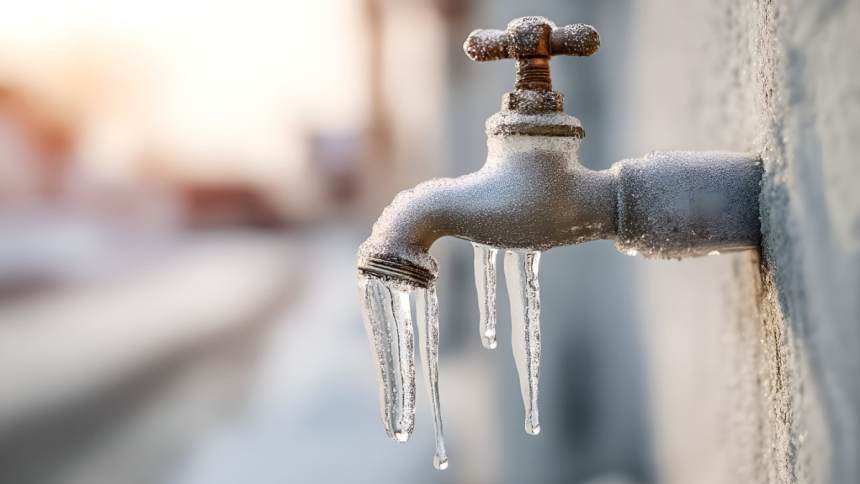When temperatures drop, your plumbing quietly carries more weight than you realize. Pipes, drains, and water heaters don’t love the stress of freezing weather, and what looks like a small fix can spiral quickly if handled the wrong way. Winter plumbing isn’t the season for trial and error, and knowing when to let a pro step in can save both money and sanity.
Frozen Pipes Aren’t a Quick Fix
It’s tempting to thaw a frozen pipe with whatever heat source you have on hand, but that often ends in split pipes or worse, fire hazards. The real danger comes from pressure building up inside, turning a small blockage into a burst that floods your home. A plumber has the tools to thaw pipes safely, check for weak spots, and make sure insulation is in place so the same stretch doesn’t freeze again. It’s one of those jobs that rarely pays off to gamble with.
The Trouble With Water Heaters in Winter
Cold weather pushes water heaters harder, and if yours hasn’t been maintained, it will show. Leaks, loud banging, or weak hot water aren’t signs you can tinker away. Tanks hold scalding water under pressure, and cracking one open without experience can be dangerous. Homeowners can adjust a thermostat or drain a little sediment, but anything more belongs in professional hands. A plumber can tell if you need a small adjustment or a full replacement before you’re left without hot water on a freezing morning.
Why A Leaking Kitchen Sink Can Spiral Out Of Control
That slow drip under the sink might look harmless, but cold weather makes joints and seals more likely to fail. A leaking kitchen sink isn’t just about a wet cabinet—it often signals poorly insulated pipes or hidden cracks that tape and sealant won’t fix. By the time you notice the drip, the wood underneath may already be warped or moldy. Calling a plumber early usually costs less than repairing water damage after months of slow leaks.
Emergency Plumbers Are Not Just For Burst Pipes
Winter emergencies aren’t always dramatic floods. A sewer line backing up, a sump pump stalling, or a main line freezing all count as urgent. These problems don’t get better with time, and do-it-yourself attempts often complicate repairs. Emergency plumbers come prepared with equipment most homeowners don’t own, from high-powered augers to thermal cameras. When water starts moving in the wrong direction in cold weather, the faster you call, the less you’ll pay in damage.
Outdoor Faucets and Hose Bibs Need More Than a Patch
Outdoor spigots that weren’t drained before freezing weather are common culprits for hidden pipe breaks. A small drip outside can mean the real damage sits inside your wall. Sealant won’t fix that. A plumber can replace cracked lines, install frost-proof fixtures, and set you up so the problem doesn’t repeat every winter. These jobs are bigger than they look, and waiting until spring usually means bigger repairs.
Clogged Drains Don’t Play Nice With Cold Weather
Grease and cooking oils harden fast in cold pipes, so clogs are tougher in winter. Chemical cleaners might seem quick, but they eat away at pipes, especially older ones. If a clog’s deep, pushing harder with makeshift tools often does more harm than good. Plumbers use cameras and jetting equipment to clear blockages without wrecking your plumbing, which saves you from dealing with repeated backups when the ground outside is frozen solid.
Sump Pumps Under Winter Strain
Sump pumps don’t just fail in rainy months. Snowmelt and frozen ground can overwhelm them in winter too. Testing yours with a bucket of water only goes so far—improper wiring or frozen discharge lines can still cause backups. A plumber can check the pump’s strength, install backups, and spot vulnerabilities you might miss. That extra protection makes the difference between a dry basement and a flooded one during a midwinter thaw.
Closing Note
Winter is a season that pushes plumbing systems to their limits, and the margin for error shrinks. Some tasks are fine for handy homeowners, but frozen pipes, sump pumps, water heaters, and hidden leaks don’t belong on the DIY list. Calling a professional at the right moment isn’t just about fixing a single problem—it’s about keeping your home safe when the weather outside is already unforgiving.
Lynn Martelli is an editor at Readability. She received her MFA in Creative Writing from Antioch University and has worked as an editor for over 10 years. Lynn has edited a wide variety of books, including fiction, non-fiction, memoirs, and more. In her free time, Lynn enjoys reading, writing, and spending time with her family and friends.












